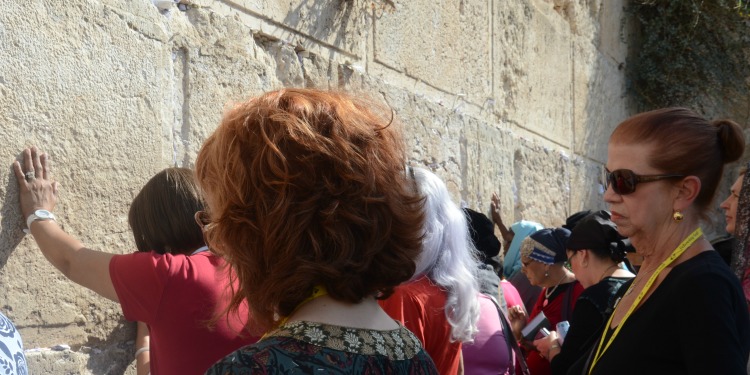Women’s Rights in Israel and the Middle East
The Fellowship | March 8, 2018

One of the biggest disparities between Israel and her neighboring Arabic countries are the roles and rights given to women. This is obvious from even a cursory glance around a typical street scene in Israel, where women freely move about dressed as they wish, and in nations such as Iran and Saudi Arabia, where women must wear head coverings in public and must either be accompanied by a male relative or have the permission of one to travel freely.
Women in Israel
In stark contrast to these gender-based restrictions, Israel has long offered her female citizens – regardless of ethnicity or religion – broad freedoms, including the right to vote, freedom of speech, equal access to education and the workplace, and no special restrictions on the way they dress. By law, women are protected from discrimination. In fact, Israel’s Declaration of Independence grants “all Israel’s inhabitants equality of social and political rights irrespective of religion, race, or gender.”
In 1951, three years after declaring statehood, Israel passed legislation guaranteeing women the right to live in dignity by providing equality in work, education, health, and social welfare. The Committee on the Status of Women advances legislation on issues such as violence against women, health and fertility, and equality at work. According to a policy adopted by Israel’s Ministry of Education, the state’s schools are required to provide equal opportunities for members of both sexes and introduce programs designed to encourage a culture of gender equality.
Throughout Israel’s short history, dozens of women have served in the Knesset (Israel’s parliament), 17 women have served as cabinet ministers, and currently 51 percent of judges in Israel are female. When she was elected in 1969, Prime Minister Golda Meir was Israel’s first and the world’s third female prime minister.
Arab World Realities
For women in Israel’s neighboring countries – including Egypt, Jordan, Syria, Lebanon, Iraq, and Saudi Arabia – one of the most troubling issues is “honor crimes,” or the killing or injuring of a wife or female family member for alleged sexual misconduct. While these accusations require little substantiation, the honor crimes themselves are rarely investigated or prosecuted. Many women in these countries also battle domestic violence, which is not considered illegal in much of the region, forced female circumcision, impaired access to education, lesser status to men in the eyes of the law, and restrictions on travel and dress.
Thankfully, there have been many strides in women’s rights throughout the Middle East in recent years. In the Arab world, female life expectancy is up from 52 years in 1970 to more than 70 today. A generation ago, three-quarters of Arab women were married by the time they were 20; that number has since dropped by half. And perhaps most importantly, there is widespread desire for increased improvement in the arena of women’s rights. Many experts attribute these changes to modern media – the internet, mobile phones, social media – allowing more Western influences and values to challenge previous discriminations against women.
Looking to the Future
It’s interesting to note that the constitutions in many nations throughout the Middle East include language and laws ensuring the rights of women. The problem, women and researchers in the region say, is that many of these laws are not consistently upheld, if not outright ignored. In this way, Israel stands apart for providing and protecting the rights of women practically from her founding. In a time when women’s issues remain in flux in much of the region, what a great opportunity for Israel to continue to model and promote democratic values – and the God-imbued worth – for each individual, regardless of gender or ethnicity.
